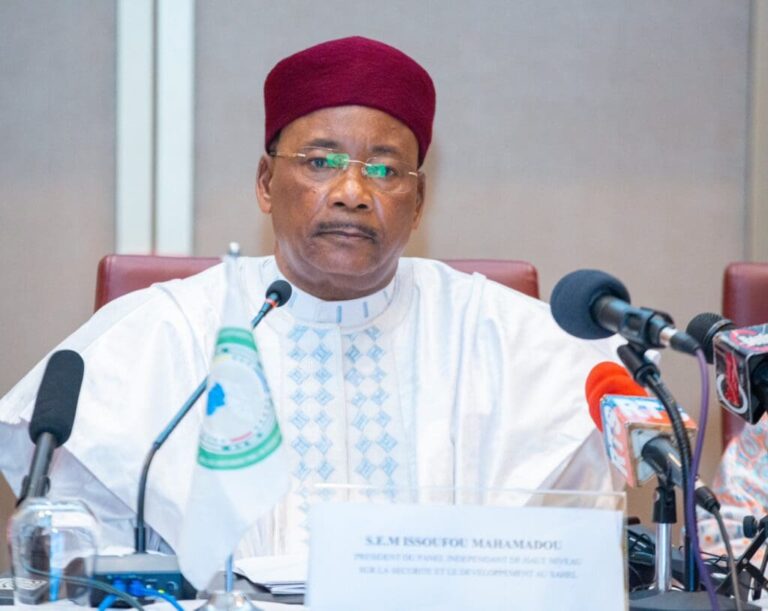Former President of Niger, Mahamadou Issoufou, a supporter of national reconciliation, pledges to contribute to a peaceful solution to the political crisis in Niger, involving the release of political prisoners, including his successor Mohamed Bazoum.
In response to a letter from the Mo Ibrahim Prize Committee, former Nigerien President Issoufou Mahamadou (2011-2021) spoke about the current political situation in his country.
In his response, dated August 1 but made public two weeks later, he implicitly explained that he was one of the victims of the new authorities despite the accusations against him.
For over a year, Niger has been ruled by a military junta and many voices accuse President Issoufou of having played a role in the overthrow of his successor, Mohamed Bazoum, on July 26, 2023.
Issoufou Mahamadou first highlighted the prolonged incarceration of his son, Sani Issoufou Mahamadou, former Minister of Oil, who is being held “in a prison located 200 kilometers from the capital.” This detention is in addition to that of the ousted President Mohamed Bazoum, his wife and other political figures for over a year.
In order to dispel any doubt about his involvement, the former head of state reiterated his condemnation of the Coup d’Etat led by General Abdourahamane Tiani, former head of the presidential guard during his two terms and that of his successor.
He affirmed his commitment to democratic principles and the rule of law, recalling his initial efforts to find a negotiated solution to the crisis.
Issoufou also spoke out against military intervention by the Economic Community of West African States (ECOWAS), fearing that it would further destabilise the region.
This option had been considered by West African Heads of State in the early hours of General Tiani’s coup, before apparently being dismissed under pressure from the military regimes of Mali and Burkina Faso.
These two countries, along with Niger, have since announced their departure from ECOWAS to establish the Co-Federation of the Alliance of Sahel States (ESA).
After leaving power democratically after two terms, President Issoufou recalled his role in achieving the first democratic change in Niger’s history in 2021, despite the numerous coup attempts he foiled during his terms.
He compared his country’s chronic instability to the “myth of Sisyphus,” calling for a structural solution to emerge from this cycle of political instability.
He called for unity and national reconciliation, urging Nigeriens to “pull themselves together, learn from the past, put an end to sterile quarrels and divisions, avoid eternal repetition, forgive each other, reconcile and work together to sustainably stabilize the country.”
Reaffirming his opposition to any violence or external intervention, Issoufou Mahamadou pledged to contribute to a peaceful solution to the political crisis, including through the release of political prisoners, with the aim of finding a “stable, peaceful and prosperous Niger”.
ODL/ac/Sf/fss/GIK/APA


